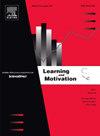花生四烯基环丙酰胺和育亨宾在缓解小鼠急性应激相关情绪记忆缺陷中的协同作用
IF 1.8
4区 心理学
Q3 PSYCHOLOGY, BIOLOGICAL
引用次数: 0
摘要
压力可能在学习和记忆过程中表现出相互矛盾的影响。内源性大麻素和去甲肾上腺素能系统分别参与调节应激反应和记忆形成;然而,它们在应激条件下回避记忆加工中的相互作用迄今尚未得到关注。采用降压法评价海军医学研究所雄性小鼠的记忆能力。急性抑制应激(ARS) 4 h降低了小鼠的降压潜伏期,表明应激性遗忘。脑室显微注射大麻素CB1受体(CB1R)激动剂花生四烯基环丙酰胺(ACPA;0.25和0.5 µg/只)可预防ARS引起的遗忘。低剂量ACPA与α2-去甲肾上腺素能受体激动剂可乐定(0.25和0.5 µg/只)联合微注射可增强非ARS小鼠和ARS小鼠的记忆保留。同时,给予可乐定(0.25 µg/只)的小鼠,ARS损害了记忆保留。此外,在存在或不存在ACPA的情况下,小鼠接受不同剂量的α2-去甲肾上腺素受体拮抗剂育亨宾(0.25和0.5 µg/小鼠)均能成功保持记忆。等线图分析表明,ACPA与育亨宾具有协同作用。然而,没有一种治疗方法对小鼠的运动有任何影响。这些结果表明,靶向CB1和α2-去甲肾上腺素能受体可能为减轻应激性记忆缺陷提供一种潜在的治疗策略。本文章由计算机程序翻译,如有差异,请以英文原文为准。
Synergistic action of arachidonylcyclopropylamide and yohimbine in alleviating acute stress-related emotional memory deficits in mice
Stress may exhibit contradictory effects on learning and memory processes. The endocannabinoid and noradrenergic systems have been implicated separately in modulating stress responses and memory formation; however, their interactions in avoidance memory processing under stress have received little attention so far. The step-down test was used to evaluate the memory abilities of male Naval Medical Research Institute (NMRI) mice. Acute restraint stress (ARS) for 4 h reduced step-down latency in mice, indicating stress-induced amnesia. The intracerebroventricular microinjection of the cannabinoid CB1 receptor (CB1R) agonist arachidonylcyclopropylamide (ACPA; 0.25 and 0.5 µg/mouse) prevented the amnesia induced by ARS. The microinjection of a lower dose of ACPA in conjunction with the α2-noradrenoceptor agonist clonidine (0.25 and 0.5 µg/mouse) resulted in an enhancement of memory retention in non-ARS (NARS) and ARS mice. Meanwhile, ARS impaired memory retention in mice administered with clonidine (0.25 µg/mouse). Moreover, mice received different doses of the α2-noradrenoceptor antagonist yohimbine (0.25 and 0.5 µg/mouse) in the presence or absence of ACPA demonstrated successful memory retention. Synergistic effect of ACPA and yohimbine was presented by the isobologram analysis. However, none of the treatments had any effect on mice's locomotion. These results suggest that targeting both CB1 and α2-noradrenergic receptors may offer a potential therapeutic strategy for mitigating stress-induced memory deficits.
求助全文
通过发布文献求助,成功后即可免费获取论文全文。
去求助
来源期刊

Learning and Motivation
Multiple-
CiteScore
2.90
自引率
0.00%
发文量
53
期刊介绍:
Learning and Motivation features original experimental research devoted to the analysis of basic phenomena and mechanisms of learning, memory, and motivation. These studies, involving either animal or human subjects, examine behavioral, biological, and evolutionary influences on the learning and motivation processes, and often report on an integrated series of experiments that advance knowledge in this field. Theoretical papers and shorter reports are also considered.
 求助内容:
求助内容: 应助结果提醒方式:
应助结果提醒方式:


